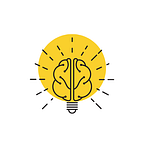Unlearning in a PhD
What is my PhD Superpower?
It is the coffee tolerance I have developed !
Withstanding the complete truth in the statement, there is more to a PhD than just coffee and work. The projects that you get to work on and the people you get to meet are few of the many perks of doing a PhD. There is a strong control it gives me over my schedule. And it feels wonderful to take an occasional Monday off just because you are feeling more productive on a Saturday! Well one might ask with all the control over my schedule why is it only in my 5th year of my PhD did I begin this endeavor. Well, there are two main reasons for the same:
- I feel like I am in a stage in my PhD where I have things to share (read: personal wisdom to impart )
- I start writing my dissertation and I wanted to document the process for the same
So let me begin by sharing a fun visualization from my life in the chart below. You will find here my coffee/bubble tea consumption over the past week against my productivity:
This blog is an attempt to capture the many experiences of a PhD student among other things. Enough to say that each PhD journey looks different. Here I share my own, personal and unique to me, in the hopes that although your journey might not be the same; there is a lesson to take away. I started my PhD in 2019 right after completing my Bachelors in Computer Science and Engineering. I am, what my advisor calls, a Pandemic PhD. The pandemic posed challenges to me just like it did everyone. Here I try to capture how those challenges helped sculpt and shape my journey. As a fresh graduate, I had broad experiences of trying my hand at different strokes of research. As I fumbled trying to find my forte, I found myself wrapped around a sea of situations. This helped me understand early how easily the personal tangle with the professional in a PhD. As a HCI researcher, while it had become challenging to conduct high quality human participatory research, as a technologist I was in the search of innovative avenues to work around this. The unique position that I found myself in (thanks to the support of my advisor) was that I was free to direct and choose the course of my entire PhD. While challenging, I saw this opportunity to put together the two themes running in my life as a PhD student at the time. As I struggled to establish meaningful relationships with my classmates while completing my PhD coursework, I started to think about the students spread across the globe that battled the same issue. Admittedly, a number of solutions proposed through in the research to improve collaboration, they relied heavily on initiation motivation embedded as a student role. As my dual role of researcher as well as a student, I felt the need for a different approach. This led to the beginning of research in open learner models and adaptive learning systems. Inspired by the works of Susan Bull as well as Peter Brusilovsky, and the class on educational psychology that I successfully completed, I sat down to write my comprehensive proposal. For the sake of brevity and sparing boredom with technical terms I offer here a simple description of the proposal. My thesis journey is the pursuit of asynchronous collaboration for adaptive learning platforms. I am inspired by Bandura’s learning theories to formulate my technical design recommendations. This work is motivated as a means to work towards achieving one of the United Nations’ Sustainable Development Goals (SDGs) and calls for substantially increasing the number of youth and adults who have technical and vocational skills in developing countries. For all the curious souls out there, if you would like to learn more about my work please find the link to the presentation as well as my website.
As I move forward, let’s talk more about the journey. Working further on the experimentations and study designs over the next few semesters, I found myself facing challenges (some foreseen and some that caught me by surprise). The interesting thing to note here was I found myself at war with my past self. And here lies one of my most favorite learnings throughout my PhD journey, you are often your worst enemy. Your thesis is often a compilation of your work through the years and that includes your younger self who did not know much about writing and study design procedures as you do now. This makes for an interesting situation where you are constantly improvising and building. The then well thought out idea had now evolved in different ways : some due to bureaucratic situations while others due to financial limitations and some just concerning my over estimation. One of the components of understanding you are your own worst enemy is that you understand that you alone hold the power to navigate the maze of your mind to grow and find solutions. And that is precisely what I did. In this first chapter of what I learnt in my PhD that is not academic is: when fighting myself, the best weapon is documentation and notes. The more content I had to help me refer back to the thought process I had when framing something a certain way or making decisions. With this learning, I end my piece with a parting thought. One of the greatest things about a PhD is the room to make amends to the mistakes of your past self. Few pathways in life offer this opportunity.
I look forward to writing the future editions of our blog.
Welcome on this journey of unlearning a PhD with me.
~ Sanjana Gautam
